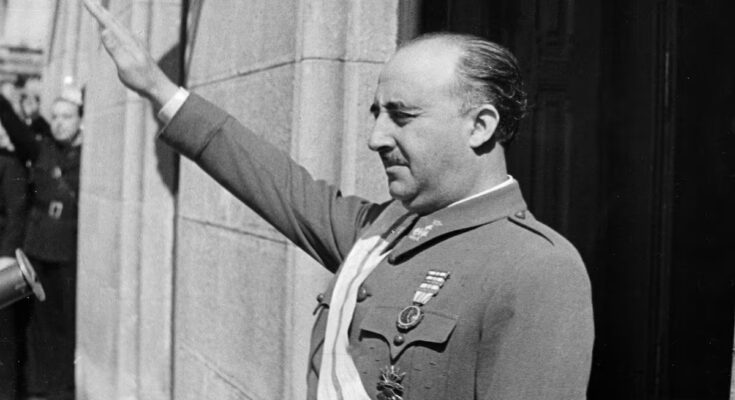A further step towards the extinction of the Francisco Franco Foundation. The Ministry of Culture chaired by Ernest Urtasun has announced that it will reclaim the historical archive owned by the aforementioned foundation through the State Attorney’s Office because it believes that the thousands of documents in its possession are public property “and must be returned to the State”. This summer Cultura analyzed 27,620 documents available on the foundation’s website to determine whether they are public or private. The released report concludes that they belong to the people, since they come from the activity of a head of state and were mostly produced in the Civil Chamber and the dictator’s Secretariat.
The origin is not the only criterion for determining the ownership of these documents, but also the official seals, headings or signatures they present; its relationships with institutional, governmental and jurisdictional operations, as well as classified state security and defense reports. All this “belongs to the Spaniards, to the researchers, so that they can document the repression,” Urtasun said in an interview on TVE collected by Europa Press. “They belong to the public domain,” the minister said.
The collection preserves 950 writings from the 1930s, 8,500 from the following decade and 9,500 from the following decade (the majority, 34%); There are 5,700 from the 1960s and 1,040 from the 1970s, to which we must add 2,000 without dating. “They must be returned to the state and preserved in a public archive according to the Spanish Historic Heritage Law,” Cultura claims in a statement. Article 54.1 of this law provides that those who have held public positions are required to deliver to their deputies the documents produced in the exercise of this function or the corresponding file. They are imprescriptible assets and cannot be acquired by accumulating them over a certain period.
The Franco fund preserves files on reports and visits of foreign heads of state, such as that of the American Eisenhower in Madrid in 1959 or that of Evita Perón in 1947, letters of diplomatic interest as well as information on historical events, such as the Second World War or Spain’s entry into the UN. The archive also preserves written memories of relations with former colonies, North Africa and decolonization processes, as well as Gibraltar affairs and relations with the Vatican.
The measures to transfer this archive to the public authorities come months after the beginning of the procedures for the annulment of this foundation, for which reports were presented documenting the clash of this entity with the Law on Historical Memory “due to its apologia” of the Franco dictatorship and the “humiliation of the dignity of the victims” of that period. “Spaniards must not pay – through tax breaks – for these anti-democratic activities,” the Government claims.
To obtain the papers from the Franco archive, Cultura trusts that justice will act in the same way as it did with the Pazo de Meirás, the recreational residence of the dictator’s family in Galicia. A ruling last year held that part of the assets collected in the palace belonged to the Administration because they “reflect the development of the political, economic and social history of Spain between 1938 and 1975”. The sentence, in any case, is contested.
In these days, which mark 50 years since the agony and death of the dictator, Culture has also started a parallel process to shut down four other foundations dedicated to the Falangist José Antonio Primo de Rivera, to the politician Blas Piñar, the one named after the dictator’s brother-in-law, Ramón Serrano Suñer, and the children’s foundation Queipo de Llano, a soldier who historians unequivocally define as a war criminal.



